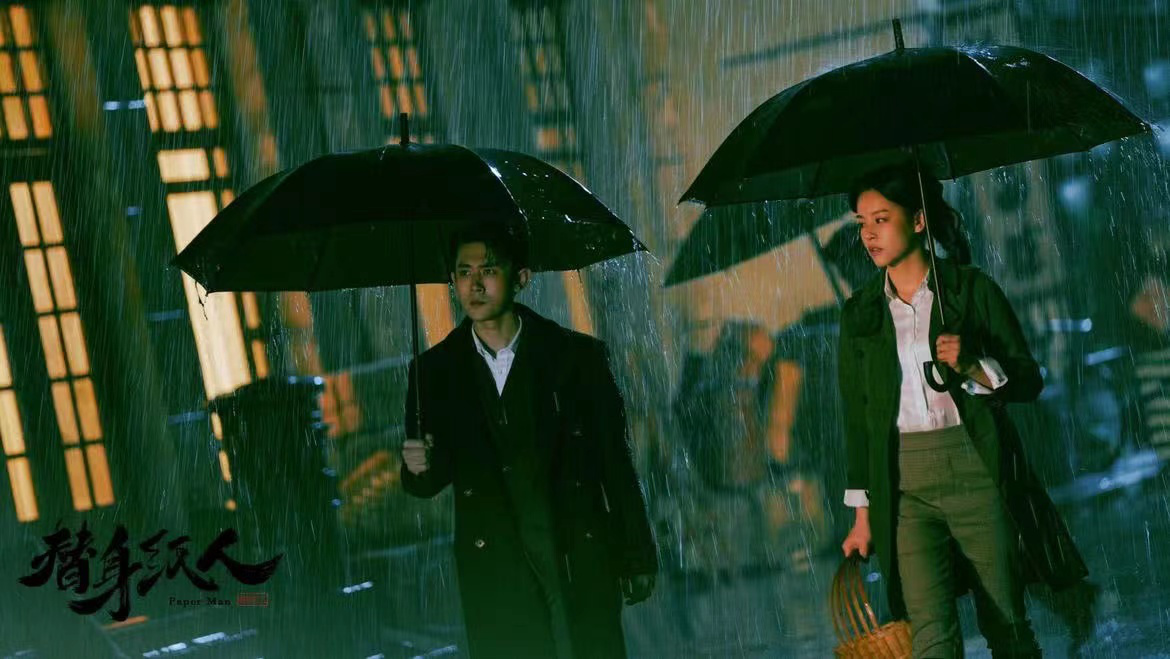Rio Olympics Meet "A New World" (Direct Attack on Rio)
There is a saying in Brazil: "God spent six days creating the world and dedicated his seventh day to Rio de Janeiro." Seen from the air, Copa cabannes Beach is like a crescent moon, and together with Monte Cristo and Bread Mountain in the distance, it outlines the extraordinary "city of angels". The five-ring sign erected high on the beach attracts people of different colors: the Olympic Games is just around the corner.
This is the first time that the modern Olympic Games landed on the South American continent in 120 years. Rio shouted its slogan "A New World", which indicates that this will be a unique Olympic trip. Four years ago, in the "Rio 8 Minutes" at the closing ceremony of the London Olympic Games, the scene of ball king Bailey dancing samba with a cleaner is still unforgettable. Four years later, Rio, beset by various singing failures, still does not change its confidence in creating history. The change of the new Olympics may start from Rio.
The change of Olympic image
Back in time seven years ago, Rio was able to beat powerful rivals such as Chicago, Spain and Madrid to win the right to host the 2016 Olympic Games. Of course, it was related to the booming economic situation in Brazil at that time, and the new version of the Olympic Games represented by Rio was also the key weight to tilt the voting balance.
In 1896, when the first modern Olympic Games initiated by the French Coubertin was held, "internationalization" was its supreme goal. But it was not until 60 years later that the Olympic Games venue broke the monopoly of Europe and the United States and gradually expanded to Oceania, Asia and other countries in North America. If the Olympic movement wants to maintain its vitality forever, it needs fresh blood and diversified participation. Just as the concept conveyed by the slogan of Rio Olympics — — Unity, respect for diversity and desire for change.
Every host takes "uniqueness" as its motto, but after a century of Olympic Games with growing prestige, it has already formed a huge and complex "Big Mac template". Since 1980, the number of events in the Summer Olympic Games has increased by 50%, the number of participants has doubled, and the corresponding number of event support personnel is more than three times that at that time. The cost of hosting the games has soared, and to some extent, the Olympic Games has gradually become the patent of "rich countries".
At the beginning, no one would have predicted that Brazil’s economy would decline to the present embarrassing situation. However, this kind of "accident" may accelerate the "popularization" of the Olympic Games and create the possibility for more countries to dare to take over the baton. Nuzman, chairman of the Rio Olympic Organizing Committee, said frankly, "When we feel these problems, we will hold the Olympic Games in a different way, which will also change the way the Olympic Games will be held in the future." In fact, from luxury to simple, it will not detract from the charm of the Olympic Games. "New vision, new hero, new role model", Rio Olympic Organizing Committee explained the power of sports change.
In the drastic reform of the International Olympic Committee, it also chose to give the host country more autonomy. "Now is a troubled world, changing too fast, so don’t look at the Olympics with a traditional and static concept". Since taking office, IOC President Bach has repeatedly expressed this concept. When he arrived in Rio, he didn’t care much about some mistakes in the preparatory work. "Here, you can already feel the energy of the Olympic Games."
The unrestrained and free nature of Brazilians creates a series of variables under the great inertia of the Olympic model. The award ceremony of this Olympic Games will boldly incorporate "personalized" creativity. When equestrian, fencing and other events are awarded prizes, it will still be the traditional "formal" routine; In basketball, volleyball and other projects, the awarding staff will wear orange striped jackets and appear with pop music; If it is a cool project such as beach volleyball and BMX, there will be hip-hop music with Brazilian characteristics on the scene, and the winners will roll up their sleeves and maybe shake them a few times. This is not only the first time in the Olympic stage, but also coincides with the idea of "enhancing attractiveness" of the International Olympic Committee.
The change of medal pattern
For participating delegations and athletes, realizing their dreams has never been an easy journey. The battle for the ranking of the Olympic medal list is not only a panoramic scan of the sports strength of a country or region, but also a four-year overall appearance of the world sports pattern.
From the United States and the Soviet Union taking turns to lead before the 1960s to the Democratic Republic of Germany joining the competition, the Olympic medal list has gradually become the trend of "the three countries stand in the balance". In the 1990s, CIS and Russia replaced the Soviet Union and competed with the United States for the top spot. The 2000 Sydney Olympic Games was a watershed, with the United States, China and Russian gradually occupying the first group, and the number of gold medals won by these three sports delegations in each session accounted for more than 30% of the total.
The seemingly stable medal pattern has changed from the London Olympic Games and may be further subverted in Rio. Russia no longer adheres to the national system of competitive sports, and its overall competitiveness has accelerated in recent years. The scandal of "organized doping" exposed before the Rio Olympic Games caused nearly one-third of the athletes in the delegation to be banned. This means that the battle for the top spot in Rio will be between the United States and China. According to the talent training cycle, Russia may not be able to return to the first group in the short term.
The pattern of gold medal diversion and the combination of the strong countries may become more and more obvious in the Rio Olympic Games. In the last two Olympic Games, delegations from more than 80 countries and regions were on the medal list, which was significantly higher than 75 in the 2004 Athens Olympic Games. Now, more and more athletes from small sports countries go to Europe and America for training, which has rapidly improved their competitive level. The circulation and sharing of a large number of foreign coaches has also made the weak projects in many countries fill the shortcomings. When "the world is flat" becomes the footnote of sports, the gap in the arena will also become smaller.
The host country of the Olympic Games often produces a "host effect", but the Brazilian delegation does not have the power to control the medal pattern. After all, they only won three gold medals in the last Olympic Games. In order to hand over a satisfactory report card at home, the Brazilian government launched the "Olympic Medal Action" in 2012, hoping to rank among the top ten medal lists with the largest team in history and a large number of "wild cards". However, if you look at the runners on Rio’s coastal roads, the countless goals and nets on the beach, and the football teenagers everywhere in slums, the love and pursuit of sports actually does not lie in the number of gold medals.
On August 3, 10 refugee athletes from Syria, South Sudan, Democratic Republic of Congo and Ethiopia stood in the spotlight of the world at the flag-raising ceremony of the Olympic Village. This is the first time in Olympic history that a delegation composed of refugees has been welcomed. Popler Misenga, a player from the Democratic Republic of Congo, said: "Sports have changed my life. Sports represent hope and eliminate our sadness." Many times, sports can’t get rid of the shackles of politics and the devastation of war, but as an equal participant, gathering under the five-ring flag, isn’t it a force beyond everything? Peace, dignity and dreams make the Olympics last forever.
The change of viewing angle
It usually takes more than 30 hours to fly from China to Rio. The long and distant journey has dismissed many people’s plans to watch the Olympic Games. In the past, visiting the site or watching live TV was the best way to directly attack the Olympic Games, but the mobile Internet has created a new horizon.
Some domestic media predict that the ratings of Rio Olympic Games in China will drop sharply due to the time difference and other reasons. According to Yi Jiandong, a sports scholar, after the Beijing Olympic Games, people’s enthusiasm for the Olympic Games has decreased, but it may erupt again in new media. On July 31st, the topic of "Russian weightlifting team banned" was listed on Sina Weibo’s popular search list, with nearly 80,000 followers. Sharing and communication between netizens is more convenient, which reawakens the public’s enthusiasm for the Olympic Games to some extent.
Relying on the social platform, athletes and the public achieve "face-to-face" communication and more intimate interaction. On August 3rd, Liu Xiang, a member of the China swimming team, took a photo in the Weibo, smiling brightly at the pool. She left a message saying, "It’s 11 hours behind you. I’m ready to rest after practice. Good morning and good night!" " As soon as Weibo was issued, many netizens cheered her up like friends. "Last fight, come on!"
The International Olympic Committee also conforms to the trend of new media and takes the initiative to change. A 24-hour Olympic channel will be launched soon, and the Olympic Games will become normal from a four-year "festival", which can also attract young people and Olympic die-hard fans in non-Olympic years. As Exedorus, CEO of the Olympic Broadcasting System, said, "The Olympic Channel has provided sports fans all over the world with the opportunity to participate in the Olympics, which is unmatched by many previous Olympic Games."
If the London Olympics marks the Olympic Games entering the social era, then the Rio Olympics is destined to be a "live Olympics". VR (Virtual Reality) technology is applied in the Olympic Games for the first time, or it will completely subvert the traditional watching experience. During the Winter Youth Olympic Games at the beginning of this year, a European audience who watched the live broadcast of the opening ceremony with VR equipment was amazed: "Sitting in their own homes, the athletes from all over the world holding the national flag are so close that they can almost stick your face."
The change of viewing angle is not only external, but also internal. The International Olympic Committee once conducted a survey on which three events were most concerned by audiences from all over the world in previous Olympic Games. The results showed that the men’s trapeze and the American men’s basketball "dream team" beat many domestic gold-winning events and gained worldwide recognition. "For the audience in China, the total number of gold medals and the number of medals won’t be taken too seriously, and they will be more tolerant of the players’ failures and ups and downs. From paying attention to the country to paying attention to yourself, from paying attention to gold medals to paying attention to health, this is a rational return. " Yi Jiandong said.
Special issue layout design: Cai Huawei



